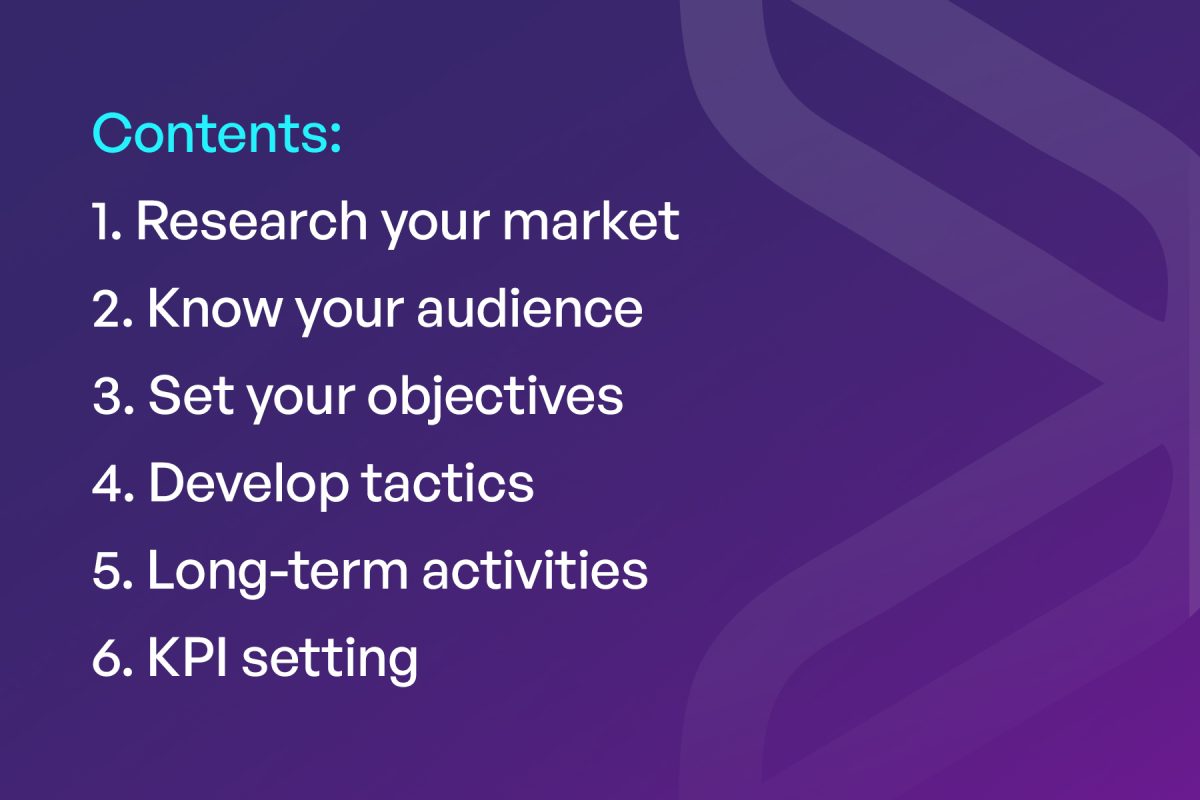Defence marketing in 2024: top tips for successful campaigns
21.02.24


21.02.24

With geopolitical tensions rising in an increasingly uncertain world, the defence sector is proving to be a vital industry for many nations, especially those within the NATO alliance. The industry plays a central role in protecting people and deterring aggression with cutting-edge technological solutions. Are you one of the companies looking to expand their presence in this market? In this blog, we look at marketing strategies and tactics that companies can explore that will help win new defence business and further grow.
Whether you’re part of senior management team, the sales/business development team, or in marketing, you know that marketing will be essential when it comes to creating a buzz around your company and its solutions. But what steps do you need to take to ensure that your defence marketing campaigns are successful and they translate into wider business success? And what do you need to consider when putting together a marketing strategy?

Here are our top tips for making your marketing a long-term success in defence:
While there are many commercial opportunities in defence, it is important for any business to understand the market they are entering, including the sales opportunities and how their solutions weigh up against likely competitors. Failure to do this can result in wasted resources and even failed businesses.
As part of any defence marketing strategy, companies will have to carry out an external analysis that takes into account various factors that may impact wider business goals. This could include the political situation in the target country, the levels of defence spending, or the levels of competition from domestic and foreign companies. Businesses will also have to account for slow procurement cycles in defence, which can be challenging, particularly for those just entering the market such as start-ups.
A thorough understanding of the market and where opportunities lie, including for certain strategic programmes, will inform future campaigns and where to concentrate marketing efforts for a given period.
A thorough internal look at your business will also be crucial, not just at your products and solutions and how they fit into the market, but also your ability to gather resources for sales and marketing campaigns and the internal skills you have to carry out specialist marketing and sales activities. This normally culminates in a SWOT analysis, allowing you to bring together all your findings and for you to begin actioning areas that require attention.
Defence is highly specialist with a diverse range of stakeholders that can impact decision-making, especially when it comes to buying your products. For this reason, it’s not only important to understand who are the stakeholders that you want to engage with, but also how they fit within wider decision-making units.
As a B2B (business-to-business) and B2G (business-to-government) sector, there are often a large number of people in defence that can have an influence on the purchase of your solution. That’s why a thorough stakeholder analysis is critical, and this will then inform areas such as messaging, positioning and the eventual marketing tactics you employ.
Defence also has its own unique language, including technical and military phrases, and not forgetting a myriad of acronyms! So it’s important that your material includes this unique phraseology to show that you are speaking the language and understand the environment – without being too jargon heavy.
Knowing your audience and their attributes, including what their challenges are and their attitudes, is essential and will ensure everyone understands the target stakeholders and how to communicate with them.
You should clearly understand what you want from your marketing campaigns, including measurable outcomes that can help a team understand success and failure. While the ultimate success metric is increased sales within particular segments (and an equal increase in market share), this can be difficult to attribute to marketing alone and therefore other metrics should be used to supplement this.
Marketing objectives can relate to specific areas of the sales pipeline or funnel, with key areas being top-of-funnel awareness, as well as bottom-of-funnel purchase decisions. A campaign could concentrate on building awareness for a particular solution or new product, and objectives could be to increase visits to the product page, as well as an increase in product enquiries both online and offline.
A strategy or plan will often list out key areas of the business that require an additional marketing boost, particularly if it correlates to a specific event, whether that is an exhibition or a down-select announcement.
Objectives have to be SMART (Specific, Measurable, Achievable, Realistic and Time-bound), as anything else is simply qualitative and it will be difficult to determine whether you’ve succeeded. Avoid generic statements such as ‘increase awareness in the defence market’, and instead attribute specific metrics and deadlines to your goals so that they can be measured accordingly.

The activities mentioned above should inform your decision-making when it comes to the tactics you’ll employ in your marketing campaigns. Understanding your market and your audiences, as well as the objectives you’ve set out, will give you a good idea of what tactics you should be leveraging for your campaigns.
A key question to ask yourself when it comes to tactics is whether or not your target audience will see and consume the material that you are producing. And importantly, will it have the desired effect that you want to achieve with your target at their stage in the buyer journey? Marketing tactics can include:
In today’s world of content saturation, campaigns should inform and create value for your stakeholders – this could be a thought leadership blog that highlights solutions to known industry challenges, or a series of LinkedIn posts that show your community-focused and charitable projects. Of equal importance is ensuring integration and alignment across channels with common brand elements, including messaging, creatives, and brand voice. Your initial market and company analysis should also inform you of the best channels to use, as well as the budget you can allocate to each medium and whether you have the expertise to fully realise your objectives.
While there is no set formula for marketing campaigns and what tactics should be pursued, a rule of thumb for defence marketing activities is that they are sustainable for an extended period.
The nature of the defence market and its characteristically long procurement cycles means that marketing activities will have to follow key programmes up to purchase decision and often beyond. It’s not enough to sink your budget into a product launch or event and expect your marketing to be done.
A marketing plan should set out how you expect to achieve your marketing objectives over the next year or more, not only with your identified tactics but also outlining who will carry them out, using what technology, and at what price. An implementation plan is crucial for any project and will help prioritise key areas and help you understand what will take up finite resources within an organisation.
Understanding what your organisation is capable of – and what it is not, owing to either budgetary constraints or internal skillsets – should be identified early on so that it can be planned for accordingly (when you are in your research phase). A key marketing push will almost certainly need more budget and more people, both within the company and most likely from external sources such as agencies, so this should be accounted for early on.
In today’s digital world, almost everything can be measured so performance can be constantly monitored. There are hundreds, if not thousands, of digital marketing tools to use and to extract data from to see how campaigns are performing. Success on a project can be measured against the objectives that have been set out in your marketing strategy, and plans can be modified to account for over- or underperformance.
Some popular tools to use to gather data on your digital marketing campaigns can include:
There isn’t a day that goes by that a new marketing software isn’t released, so ensure that you are using tried and tested tools that gather the right information and data for your marketing objectives. If you don’t have in-house experts on these tools, it is often better to use external agencies that already have subscriptions and experts on hand to help you gather this data and the all-important actionable insights.
Also, just because you are often able to measure in real time, don’t expect your results to be rapid. Many marketing initiatives and campaigns will take time to have an impact and take effect, and this should be reflected in your SMART objectives when you’re setting them, so make sure you set realistic expectations for your business going forward.
If you have plans to grow in the defence sector and take market share away from your competitors, then it’s very likely that you’ll have to invest long-term in marketing and communications that will aid awareness, interest and desire for your solutions. This will require your business to formulate an effective marketing strategy, which will be integral for your business and correlate closely with your wider commercial goals going forward.
A marketing strategy is not an overnight document and will require careful preparation to ensure that you achieve your goals. Following our tips above should give you a great starting point for your marketing journey, and give you the tools necessary to formulate key areas of your strategy. We will have more tips and information to help you meet your defence marketing goals throughout 2024, so remember to keep checking back with us.


Signatories of:


Members of:



Innovation House
Molly Millars Close
Wokingham
RG41 2RX